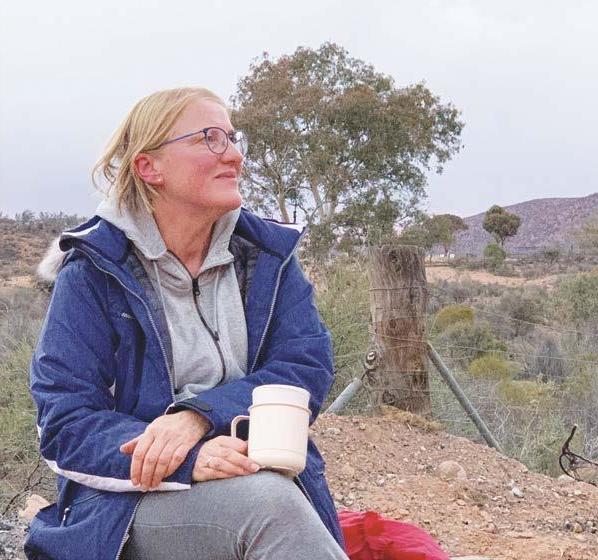
3 minute read
A Defining Moment
We asked Rev Professor Vicky Balabanski why she chose to teach biblical studies and theology and if there was a defining faith moment for her?
I think the seeds of my passion for studying the Bible can be traced back into my childhood. My mum and dad were post-war immigrants, and had joined the local Methodist Church. Dad had been brought up in the Bulgarian Orthodox tradition, and mum in the Roman Catholic Church, so it was perhaps a surprise that the Methodist Church became their spiritual home. They were both involved in running the Sunday school. I still have a puppet play my mother wrote for a Sunday school session, depicting Paul being let down in a basket to escape (Acts 9:25). Maybe it made an impression on me to see my mum enjoying getting into the Bible story! There was a choir at church that my mum, my sister and I sang in, and I remember singing ‘The Lord’s my Shepherd, I shall not want.’ I started developing my interpretation skills, and decided that this must mean that if the Lord’s the Shepherd that I don’t want, I must be pretty rebellious! At Primary School, I remember having a Religious Education teacher who came in each week as a volunteer and told us engrossing stories about the Christian faith. One memorable occasion was the story of Albert Schweitzer, and his decision as a theologian and musician to become a medical doctor and work in Africa. Of course at the time I didn’t know that Albert Schweitzer was a famous New Testament scholar, but I was impressed by someone who combined study and action. Dad was the one who prayed with me each bed-time. Both mum and dad were half a world away from their families, and I learned to pray for people I had never met. Then, while I was still at Primary School, first mum and then dad died within a year of each other with health issues. My memories of this time are of fear and also courage, grief, lots of discussion about where we would now live, and a certain isolation that descends when your peers are no longer on the same page as you are. God was present too. Because we were not allowed to view dad’s body nor attend the burial, probably for fear of what the grief might evoke in us, any talk about God was held at arm’s length. In the end, my sister went to live with our next door neighbours. I eventually went to live with a family a few doors away that was newer to our community – a Churches of Christ family with three daughters. The loss of my parents was the biggest challenge to my faith that I had ever had or would ever have; how could a loving God let that happen? My teen years – as a scholarship kid at Methodist Ladies College in Melbourne – saw me bury my nose in my studies, hang out with the Jewish girls at school and embark on learning Hebrew. I was now actively involved in the local Churches of Christ Church, morning and evening, and attending the Friday night youth group. One of the women who ran the youth program was a significant mentor to me. She had a vast, extrovert personality, and managed my isolation very well, and with lots of humour. She also had a PhD in English, and was teaching at Melbourne University, and she combined her intellect and her Christian faith in a way that I respected. At 16, I spent a year in Munich with my mum’s family. It was a very healing year for me; one of reconnection with my family of origin; one of learning the traditions of the church; one of allowing myself to be a normal teenager who could get angry – not something I felt I could risk in my foster family, despite their kindness. On returning to Australia to do Year 12, I decided to do Religious Studies in the evening, and I remember sitting all by myself in the school gym to take the final exam.

I think my love of studying the Bible was my pathway into making sense of life. I like to think it can be for others too!
Rev Associate Professor Vicky Balabanski Director of Biblical Studies Uniting College for Leadership & Theology









